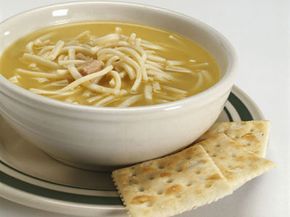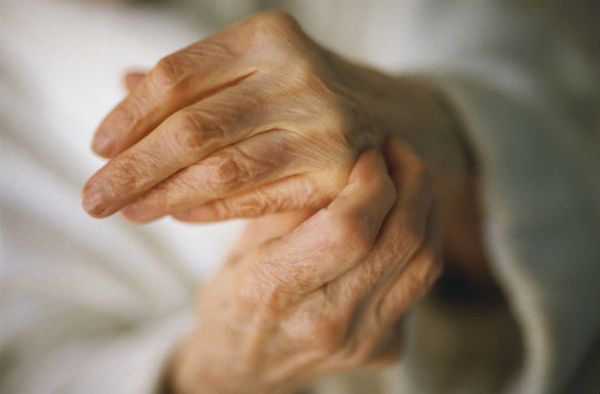Whether you attempt to remedy your cold by curling up with a bowl of hot chicken noodle soup or by eating a chili dog laden with sinus-clearing horseradish and jalapeno peppers, you're following the same time-honored admonition -- feed a cold.
That advice is half of "feed a cold, starve a fever," a folk maxim that dates back to at least the 1700s. It appears to be based on the ancient belief that cold symptoms were caused by a drop in bodily temperature and that stoking your internal furnace with fuel would restore health. Since then, cold sufferers have been consuming comfort foods to stave off symptoms -- often in such quantities that the practice became known as "stuffing" a cold. In fact, in 1901, the Chambers' Encyclopedia advised: "Some…maintain that a good dinner and a tumbler of whiskey or brandy toddy are the best specifics."
Advertisement
But does feeding a cold actually make anyone better? Nineteenth and early 20th century physicians who believed that digestion distracted the body from fighting disease thought hearty eating would only weaken cold patients. But since then, as we've learned more about the viruses that actually cause colds and how the body's immune system fights them, medical science has shifted its position. Today, doctors and dieticians think eating not only can help your body to combat a cold, but also can help you feel better.
But stop before you wash down that glazed donut with a vente Frappuccino. Experts advise cold sufferers to fuel their bodies with a healthy, nutrition-rich diet, including plenty of fruits, vegetables and protein sources, and to consume plenty of water, decaffeinated tea and juices. And as it turns out, your grandma was on to something when she coaxed you to eat chicken soup.
What is it about grandma's soup remedy that works? And what exactly is the common cold?
Advertisement



